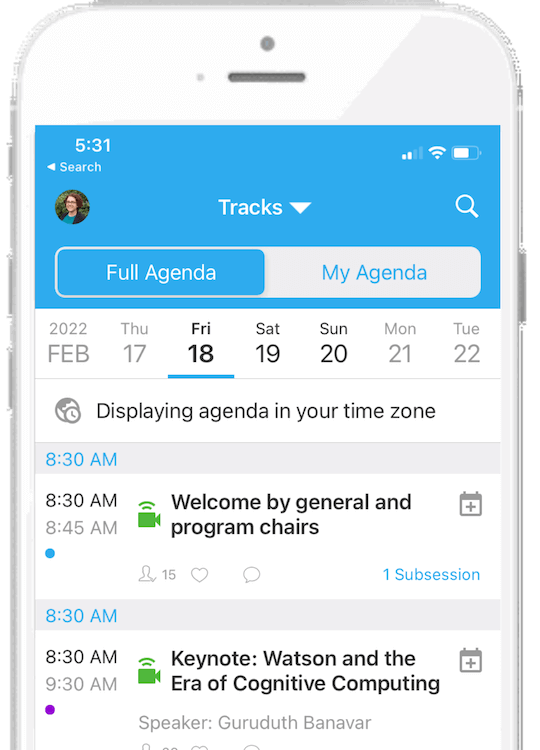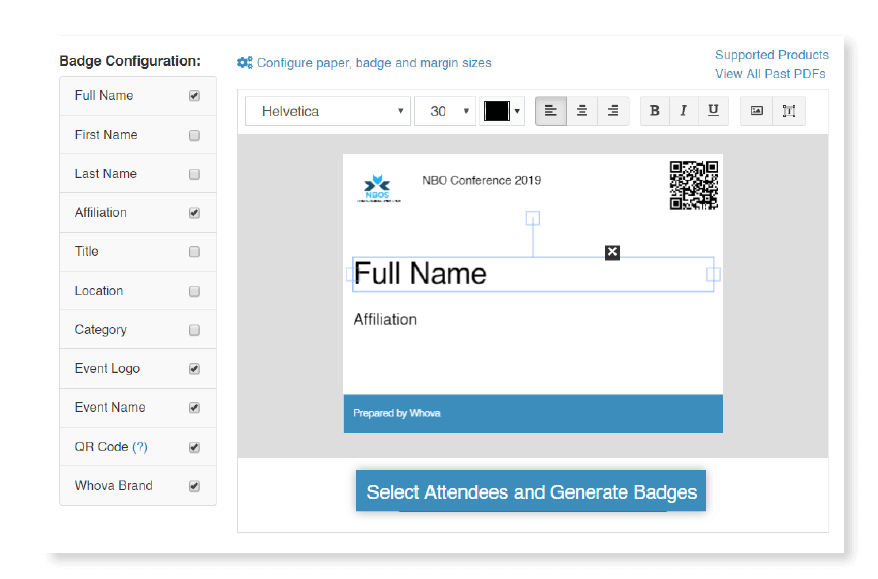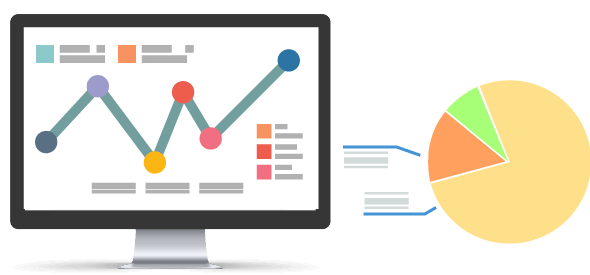By: Whova Team | Last updated: July 16, 2025

You’ve got a major event coming up, but limited time and a tiny team. The pressure is mounting, deadlines are looming, and you’re wondering how you’ll pull off a successful corporate gathering without neglecting your daily work.
You have two options: hire a professional corporate event planner or use event management software like Whova to handle it in-house. Each approach has distinct advantages depending on your budget, timeline, and needs. Alongside an event project management guide, this blog will help you decide which path fits your situation best.
What is a Corporate Event Planner?
A corporate event planner is someone who organizes events from beginning to end. They work behind the scenes to make sure gatherings go smoothly. From managing tight budgets to finding the perfect venue, they juggle it all. They understand what businesses need and have a knack for making even the most ambitious event a reality.
Their day-to-day work involves coordinating with multiple vendors, negotiating contracts, and creating detailed timelines. This includes scouting locations, arranging catering, managing guest lists, and handling event logistics like transportation and accommodations. When problems pop up (and they always do), event planners are the ones who find quick solutions to keep everything on track.
Types of events corporate planners handle include:
- Conferences and seminars
- Trade shows and exhibitions
- Company retreats and team-building events
- Product launches and promotional events
- Holiday parties and award ceremonies
- Board meetings and shareholder events
Whether they’re an event planner in New York organizing a finance summit or an event planner in California launching a big tech product, the core skills remain the same.
Services a Corporate Event Planner Offers
Here’s a brief rundown of a corporate event planner’s responsibilities from start to finish:
1. Pre-Event Planning
Corporate event planners determine the type of event that best aligns with a company’s goals and brand, leveraging their expertise in the event industry to create tailored experiences. Finding the right venue means visiting different locations, checking how many people can fit, and negotiating prices. Sound quality and accessibility become key factors during these site evaluations.
Planners also handle booking speakers and entertainment, ensuring these choices effectively connect with attendees. Many people use abstract management software to simplify the process.
Menu planning with caterers requires careful coordination, too, while tech teams need advance notice to prevent those dreaded equipment failures. All of this planning gets organized into detailed timelines that keep everything on track when event day arrives.
2. During Event Execution
On event day, planners juggle all the moving pieces to keep everything running smoothly. For larger events, they organize teams to oversee different areas and ensure nothing falls through the cracks. Check-in and registration need constant attention to avoid long lines and confusion at the entrance.
Meanwhile, vendors require active supervision – from catering staff serving meals to audio-visual technicians managing presentations. Since quality control remains crucial throughout the day, planners stay ready to jump in and address problems before guests even notice anything is wrong.
3. Post-Event Follow-Up
Once the event concludes, planners gather feedback from attendees through surveys and follow-up conversations to assess the event’s success. They compile detailed reports that break down attendance numbers, budget performance, and what worked versus what didn’t. These insights help improve future events, and they’re often shared with stakeholders to showcase the return on investment.
Hiring vs. Doing It Yourself (with Whova)
Here is a clear side-by-side comparison chart to help you decide between hiring an event planner and using Whova’s event management software to do it yourself:
| Aspect | Hire an Event Planner | Use Whova |
| Cost | 15-20% of the total event budget for larger events (e.g., $5,400 for a $30,000 event). Hourly rates vary from $40 to $250 per hour, depending on experience and location | Lower base cost; Whova charges a tiered registration fee for paid events: 3% ticket price + $0.99 per ticket processing fee; free events incur no registration fees |
| Control | Less direct control; planners make many decisions and manage vendors | Full control over event details, customization, and timing via Whova’s dashboard and app |
| Time Required | Less organizer time; planners handle event logistics and coordination | More organizer involvement, but Whova automates registration, check-in, badge printing, and engagement to save time |
| Setup Complexity | Planner manages all tasks, including vendor coordination and onsite support ,and logistics | Easy-to-use platform with straightforward setup – no technical background required. Advanced features may require some additional learning to utilize fully |
| Scalability | Scales based on planner’s team size and resources; good for complex and large-scale events | Scales easily for 100+ attendees; enterprise package supports 1,000+ attendees |
| Automation/Integration of Main Event Planning Tasks | NA (handled by planner) | Online registration, payment processing, mobile check-in, name badges, speaker engagement, event marketing, attendee networking, sponsor/exhibitor management, real-time analytics, and engagement tools. |
Your decision to manage events in-house or hire professional planners ultimately comes down to your available time, budget, and internal resources. If you have a small team but want to maintain control over your event, Whova can bridge that gap by automating the most tedious planning tasks.
Our platform handles registration, communication, and attendee engagement, allowing you to focus on the strategic elements that matter most to your organization. With transparent pricing and seamless integrations through Zapier, Whova works well for most corporate events, requiring a minimal learning curve.
For exceptionally complex events or when your team is stretched too thin, combining Whova’s automation with selective professional planning support often provides the most practical solution.
What to Look For in a Corporate Event Planner
Focus on these specific qualifications when selecting your corporate event planner to ensure a successful outcome:
- Experience with your type of event: Whether it’s a conference, product launch, or team retreat, look for planners who understand the unique requirements and challenges of your event format.
- Familiarity with hybrid and virtual setups: Many events now blend in-person and digital elements, so your planner should be comfortable managing both components effectively. Whova continues to support hybrid formats, making it a valuable tool in any event planner’s toolkit.
- Communication style and availability: Choose someone whose communication approach aligns with your preferences and who can provide the level of support you need throughout the planning timeline.
- Reviews and referrals: Feedback from previous clients provides valuable insights into the planner’s reliability, creativity, and problem-solving abilities. Don’t overlook testimonials when making your decision.
- Insurance and contracts: Verify your planner carries appropriate insurance coverage and has clear, comprehensive contracts that outline responsibilities, timelines, and deliverables. These protect you and the other party by establishing clear expectations for a successful partnership.
Common Pitfalls When Hiring a Planner
Several common pitfalls can derail your project if not addressed upfront.
- Scope creep and unclear deliverables: Without clearly defined responsibilities and boundaries, projects can expand beyond the original agreement, leading to budget overruns and timeline delays. Always establish detailed contracts that specify exactly what services are included and what constitutes additional work.
- Misalignment with audience expectations: If your planner doesn’t fully understand your attendees’ needs, preferences, and expectations, the event may fall short entirely. Take time to thoroughly brief them on your audience demographics, interests, and desired outcomes.
- Over reliance on the planner: While planners handle logistics and coordination, you shouldn’t completely relinquish ownership, especially regarding post-event activities. Maintain involvement in key decisions and retain responsibility for follow-up actions, relationship building, and measuring success. The most effective partnerships occur when clients remain engaged throughout the process, allowing planners to utilize their expertise in operational details. Having an event planning checklist is a major help here.
Questions to Ask Before You Hire
These five questions help establish clear expectations and reveal how well a conference planner meets your needs.
1. “What’s included and what’s extra?”
Budget fit questions prevent scope creep and unexpected expenses. Understanding exactly which services are covered helps you budget accurately and avoid uncomfortable conversations about additional fees during the project.
2. “What’s your backup plan for weather, speaker no-shows, etc.?”
Crisis planning inquiries reveal the planner’s level of experience and preparedness. Seasoned professionals have contingency plans ready, while inexperienced planners may struggle to provide concrete answers.
3. “Will you integrate with our software/tools?”
Collaboration questions show whether the planner can work within your established systems or will require you to adapt to theirs, potentially disrupting your workflow and data management processes. For example, how do they track event attendance?
4. “How do you handle communication and updates throughout the planning process?”
Understanding their project management style ensures you’ll receive regular updates. Some planners provide weekly check-ins; others only communicate when issues arise, which could leave you feeling out of the loop.
5. “Can you provide references from similar events you’ve managed?”
References enable you to verify their track record through events like yours and speak directly with past clients about their experiences. It’s one thing to claim expertise, but references provide real insight into their reliability and results.
How Whova Supports Corporate Events
Let’s say you decide to run the event yourself—here’s how Whova can help you succeed. Trusted by leading organizations worldwide, Whova offers a suite of powerful event coordination tools that replace traditional event planning tasks with efficient, technology-driven solutions.
1. Mobile Event App
Whova’s award-winning mobile app keeps attendees engaged and informed with personalized agendas, live polls, session feedback, and social networking features. Attendees can easily navigate multi-day, multi-track events on their phones and connect with attendees based on similar interests.

Whova’s event app allows to view event agendas, message attendees, view organizer announcements and more!
2. Agenda Builder
The platform automatically generates sleek, interactive agenda webpages that allow attendees to explore sessions with color tagging, filtering, and search options. Organizers can customize and update the agenda in real-time, providing a seamless experience without needing web design expertise.
3. Name Badge Generator
Whova simplifies on-site logistics by automatically generating professional name badges for attendees, speakers, and exhibitors. This feature integrates with registration data to save time and reduce errors during badge printing.
 Whova’s event software automatically creates professional-looking name badges that you can easily print and customize!
Whova’s event software automatically creates professional-looking name badges that you can easily print and customize!
4. Speaker Management
The Speaker Center automates the collection and management of speaker information, including bios, headshots, and session details. Organizers can create speaker webpages using templates and allow speakers to update their profiles, guaranteeing that content is accurate and up-to-date.
5. On-site Check-in
Whova offers efficient attendee check-in solutions, including mobile and self-service options. This reduces wait times and streamlines the event entry process, enhancing the overall attendee experience. Check-in can also be connected with a name badge printer to instantly get your attendee’s name badge on the spot.
6. Engagement Tools
To boost interaction and networking, Whova offers a range of event engagement ideas, including live polling, Q&A sessions, community boards, photo sharing, private messaging, and gamification. These tools help attendees connect meaningfully and provide instant feedback to organizers and speakers.
By integrating these capabilities into one platform, Whova helps corporate event organizers save up to 60% of the time spent on logistics. For example, L’Oréal’s OMA Quality Day generated over 400 profile views and streamlined compliance document sharing, while a UN international conference managed 18,000+ messages across in-person and virtual attendees, with over 5,000 app downloads.
Ready to streamline your next corporate event? Request a Demo to see how Whova can transform your event management process, or explore our full case studies to learn more about these success stories in detail.

Engage attendees with Whova’s gamification and leaderboard features!
Final Thoughts + Resources
There’s no universally right answer when it comes to corporate event planning, only the right fit for your specific situation. The most successful events happen when you match your approach to your actual circumstances rather than trying to force a solution that doesn’t align with your reality.
If you decide to hire a planner, focus on finding someone who understands your industry and communication style. Look for transparent pricing, clear deliverables, and a proven track record with events similar to yours.
If you’re ready to explore modern event management platforms like Whova, start with a clear assessment of which tasks consume most of your time. Success comes from choosing the path that leverages your strengths while addressing your constraints.
Ready to handle event logistics like a pro? Request a Whova demo.
FAQs
1. What is a corporate event planner?
A corporate event planner organizes and manages business events from concept to completion, handling logistics, vendor coordination, budgeting, creating an event marketing plan, and on-site execution to ensure the event meets company goals, engages attendees, and runs smoothly.
2. How much does a corporate event planner charge?
Corporate event planner fees vary widely based on experience, location, and event complexity. Most charge either a flat fee ($2,000-$15,000+), hourly rates ($50-$200), or a percentage of the budget (10-20%). Complex multi-day events typically cost more than simple meetings or workshops.
3. Should I hire a corporate planner or use an event platform?
It depends on the complexity of your event and your team’s capacity. Utilize an event platform like Whova for most corporate events, where you want control and cost savings through automated logistics. Hire a planner for highly complex events requiring extensive vendor management, specialized expertise, or when you lack internal resources for coordination.
4. Can Whova replace an event planner?
Whova can’t replace a human event planner, but it can do the heavy lifting, such as automating registrations, managing attendee communications, facilitating networking, and tracking engagement. This allows you or your team to focus on strategic decisions, vendor relationships, and creative elements, while the platform handles the time-consuming logistical tasks that typically consume 60% of planning time.
5. What are the must-have features in event planning software?
Must-have features in event planning software include:
- Registration and ticketing: Streamlined attendee sign-up and payment processing
- Venue and vendor management: Centralized database for locations and service providers
- Budget tracking: Real-time expense monitoring and financial reporting
- Automated communications: Email campaigns and reminder notifications
- Mobile accessibility: Apps for on-the-go event management
- Analytics and reporting: Performance metrics and post-event analysis tools


